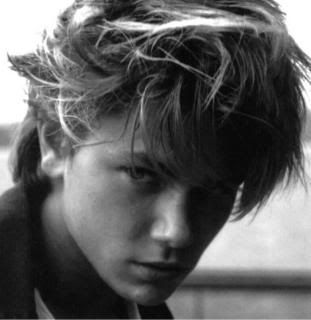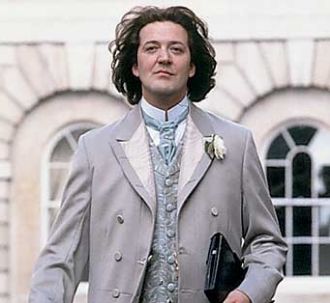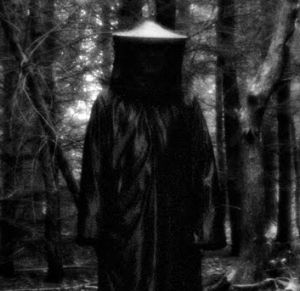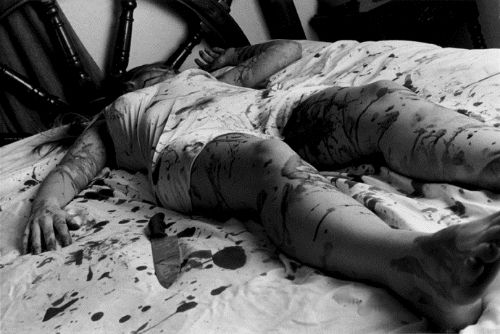- Posting Speed
- Speed of Light
- Writing Levels
- Douche
- Preferred Character Gender
- No Preferences
<img src=http://i94.photobucket.com/albums/l81/Asmodeus1845/Stories/404a3866-873f-4521-af44-7cb5aa1713ee.jpg width=80%>
<img src=http://www.iwakuroleplay.com/attachment.php?attachmentid=19127&d=1360871159 width=75% align=center>
The light had died by 6:15. In five hours time the storm would finish its journey across the Atlantic, and bring chaos to England's west coast. The army was on standby, the fishing fleet recalled, the airforce grounded. Emergency broadcasts rained across the country and warned all to stay inside and avoid the roads and coastline. This was the big one. Tonight the ocean would tear at England and claim whatever lives it could.
Yet still there were travellers. Strangers bound for the desolate village of Penryn, on the cliffs of rural Cornwall. To where horror lay in wait.
As jagged rocks threw shadows over Smuggler's Cove, two men looked out to sea. Yet they were not watching for the storm. These sentinels awaited the arrival of a different killer, one of flesh and blood who rode ahead of the black clouds. Amongst the wreckage of old boats and fishing nets the pair were dark as flotsam, in trenchcoats and trillby hats, pockets deep for wicked blades. One smoked a cigarette, the ember their only signal to the approaching visitor, an infernal will-o-the-wisp to guide his way.
And as lonesome as that cigarette in the shadows of the cove, was the lantern lit to the east in the upper window of Penryn Church. Stepping over discarded books, rat-gnawed food and broken furniture, Father Thomas Marrak returned to his desk. With gloved hand the old man took up his quill and wrote again, another letter penned in trembling ink. His study was a spider-web of words and paper, notes scrawled and symbols daubed on walls. The lamplight shuddered as rain hammered the church roof overhead. Yet still he wrote, with only a passing, shuddering glance towards the ocean.
His gaze would no doubt find the glittering jewel of Cargwyn Manor. For though the village huddled in fearful gloom, all lamps were on in the great mansion on the headland. Where treacherous cliffs rose to overlook Penryn, the house perched, beacon-like, and cast in silhouette the abandoned mine and the gated wall that divided the estate from the village. Shadows were ever-moving, behind the windows and across the grounds, watchmen and party guests enjoying their private luxury. Perhaps at one window the Lord himself looked out, and felt no fear of the coming storm. The waves would never reach him. His haven would never be breached.
And down the southern coastline, where cliffs gave way to cobbles, there was but one more light. As she had done on every night since becoming landlord, Vicky Oswald lit the lamps of the Eagle Arms and straightened the welcome mat by the door. The inn was warm and stocked with hot food and ale - an eternal invitation to the lost and weary. The young woman put on a smile and fixed her golden hair, hoping that tonight would be the night the villagers broke their boycott and came once more to drink beneath her roof. If she could know what crime she had committed - what terrible affront had caused Penryn to turn against her - she would gladly make amends. Yet since her sister Judith vanished not a single local had brought their custom through these doors.
Four points of light in the swallowing darkness. Four sparks that would ignite the horror of Penryn and tell the twisted story... of the Black Elixir.




 They warned me of the infamous weather of the South-West.
They warned me of the infamous weather of the South-West.
 The door flew open as Marina took her breath, a gust of warmth and ale casket washing over her. There was a woman in her early thirties, beaming a smile.
The door flew open as Marina took her breath, a gust of warmth and ale casket washing over her. There was a woman in her early thirties, beaming a smile. 
 The church was heavy with neglect. Neglect of furnishings. Neglect of faith. There were no lights on inside. Rain dripped through gaping breaches in the roof. And pews creaked with the passing of woodworm, vermin and spiderwebs. No one had prayed here in a long time - Jorell could tell that much as he crossed the threshold. And what abandonment had not stripped the storm was seeking to erode. The old detective could have sworn it was colder inside the church than out - a fact given testament by the aching in his bones.
The church was heavy with neglect. Neglect of furnishings. Neglect of faith. There were no lights on inside. Rain dripped through gaping breaches in the roof. And pews creaked with the passing of woodworm, vermin and spiderwebs. No one had prayed here in a long time - Jorell could tell that much as he crossed the threshold. And what abandonment had not stripped the storm was seeking to erode. The old detective could have sworn it was colder inside the church than out - a fact given testament by the aching in his bones. With a single, shivering note of horror, Eugene fell back against the hallway wall. Colour left his face. His eyes went catatonic. Like cut puppet-strings his every limb and muscle crumpled at the sight of what lay inside Room 4.
With a single, shivering note of horror, Eugene fell back against the hallway wall. Colour left his face. His eyes went catatonic. Like cut puppet-strings his every limb and muscle crumpled at the sight of what lay inside Room 4.